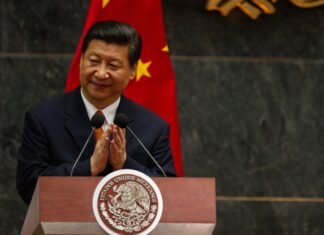The United States is poised to impose sanctions on the International Criminal Court (ICC) in response to its investigations into alleged war crimes committed by Israel in Gaza. This move reflects heightened tensions surrounding the ICC’s role in addressing serious violations of international law. The U.S. government has expressed strong opposition to the court’s inquiry, viewing it as a politically motivated attack on Israel.
The ICC, established to prosecute individuals for war crimes, crimes against humanity, and genocide, has increasingly become a focal point of geopolitical disputes. The current situation arises from the court’s decision to look into accusations surrounding Israel’s military operations in Gaza, particularly in the context of the ongoing conflict between Israel and Palestinian groups. Critics argue that this scrutiny could undermine Israel’s security and its right to defend itself against threats, raising concerns over the court’s jurisdiction and impartiality.
Supporters of the sanctions argue that the ICC is overstepping its mandate and interfering with the sovereignty of states involved in complex and volatile conflicts. They believe that the court’s actions not only threaten Israel but also set a precedent that could lead to future investigations into other nations and their military operations. Opponents of the U.S. sanctions, however, assert that the ICC plays a crucial role in holding individuals accountable for grave violations of human rights and ensuring that justice is served.
The contrasting perspectives on the ICC illustrate the complexities involved in international law and diplomatic relations. On one hand, proponents of international justice assert that accountability mechanisms are essential for deterring future atrocities and providing redress for victims. On the other hand, critics argue that such mechanisms, particularly when they focus on specific nations, can be politicized and used as tools for harassment rather than for genuine justice.
The U.S. has historically had a complicated relationship with the ICC. While the U.S. supported the establishment of the court, it has also been critical of its operations, particularly when they pertain to American military actions or those of its allies. Previous administrations have demonstrated a willingness to withdraw cooperation or impose consequences in response to perceived biases against U.S. interests.
By signaling its intention to sanction the ICC, the current administration aims to reaffirm its commitment to allyship with Israel while also deterring what it views as unwarranted international encroachments into domestic and foreign affairs. This decision underscores the delicate balance nations must navigate when addressing issues of war crimes and accountability in the context of ongoing conflicts.
As the tensions surrounding these sanctions evolve, the implications for international law and relations among countries will continue to unfold. The situation raises critical questions about the efficacy of international criminal justice and the degree to which it should be influenced by geopolitical dynamics. Observers will be watching closely to see how this confrontation between the ICC and the U.S. government evolves and what it means for the future of accountability at the international level.
Overall, the interaction between the ICC and the U.S. is a significant illustration of the challenges that come with enforcing international law in a multi-polar world where countries often have conflicting interests and narratives surrounding issues of justice and accountability.






